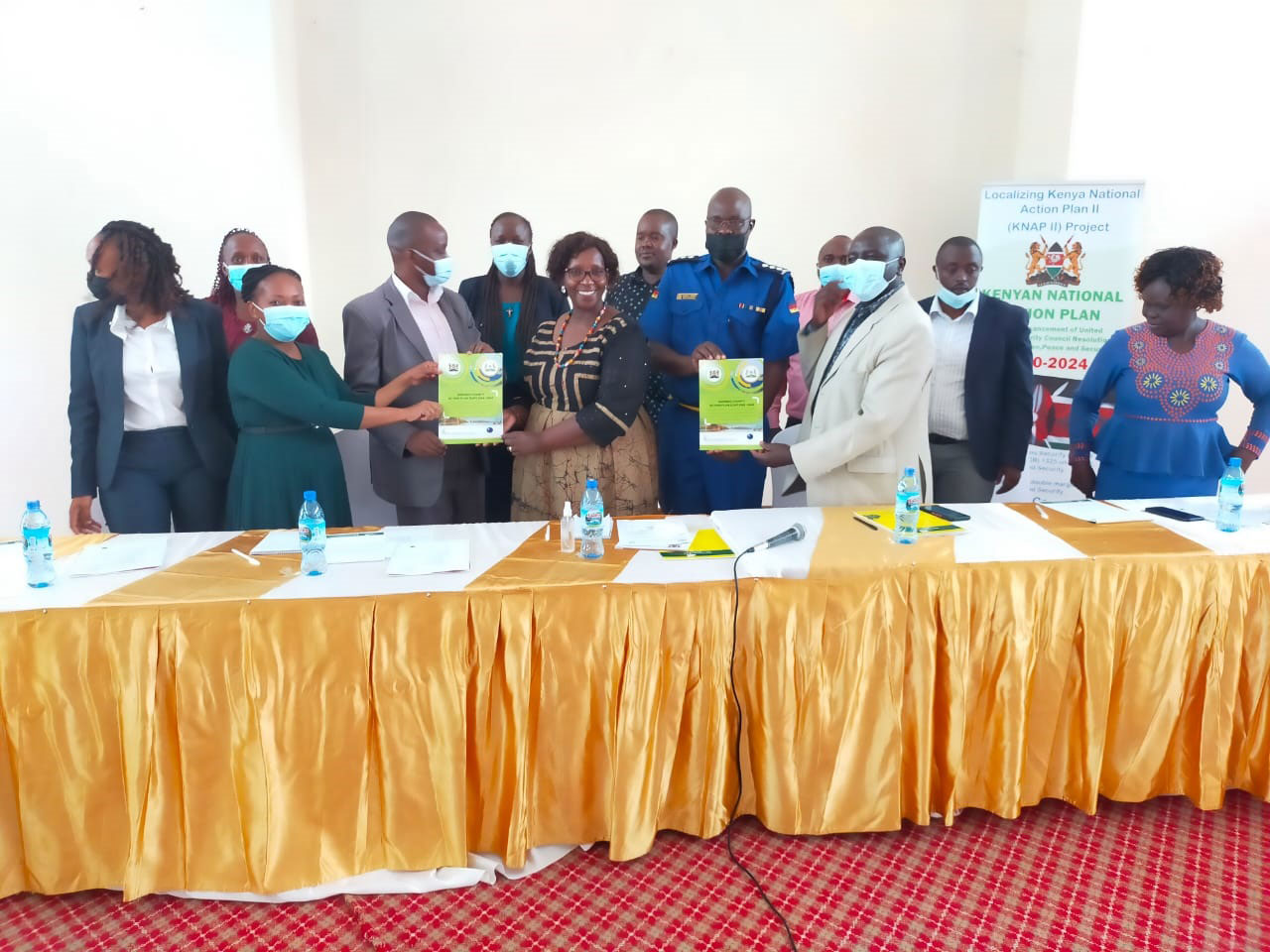Women, Peace and Security Program
The Project aims at ending the double marginalization of women in peace and security processes in the counties of Mandera, Samburu, and Baringo, the project will endeavor to bring women to the mainstream of peace and security efforts in the three counties. The project seeks to: advocate for the protection and realization of women and rights during conflict and humanitarian crises, and to increase women’s participation in the leadership of the peace and decision-making processes as envisioned in the United Nations Security Council Resolution 1325 (UNSCR 1325) and KNAP II which was launched (virtually) in May 2020.
Objectives of the program:
1) Foster participation of women in development, governance, and leadership matters.
2)Enhance women’s skills in governance and leadership to promote the protection of women and girls from harmful cultural practices such as gender-based violence, abuse, and exploitation.
3) Reduce gender-based discrimination embedded in the culture by demystifying myths that plague women’s participation in decision making in the public sphere
4) Strengthen the role of women to be better informed on peace, security, and conflict resolution in order to utilize existing resources to empower them economically, socially, and culturally.
OUTPUT OF THE PROGRAM
- Substantive engagement of women with mechanisms for conflict prevention, management, and resolution are enhanced at the county, sub-county, and community levels
- Gender perspectives ensuring the inclusion and participation of women (including youth) in humanitarian, early warning, recovery, relief, and peacebuilding programs, including internally displaced women and girls
OUTCOMES
- Increased role and agency of women and girls in peace, safety, and security
- Women participate meaningfully and provide accountability for the implementation of the women, peace, and security agenda in 3 counties.
- Women and girls have the capacity to effectively engage in relief and recovery and have access to services in humanitarian settings, including periods of disaster/crisis.
- Changed attitudes towards prevention, protection, peace-building, and conflict management at the county, sub-county, and community levels.


